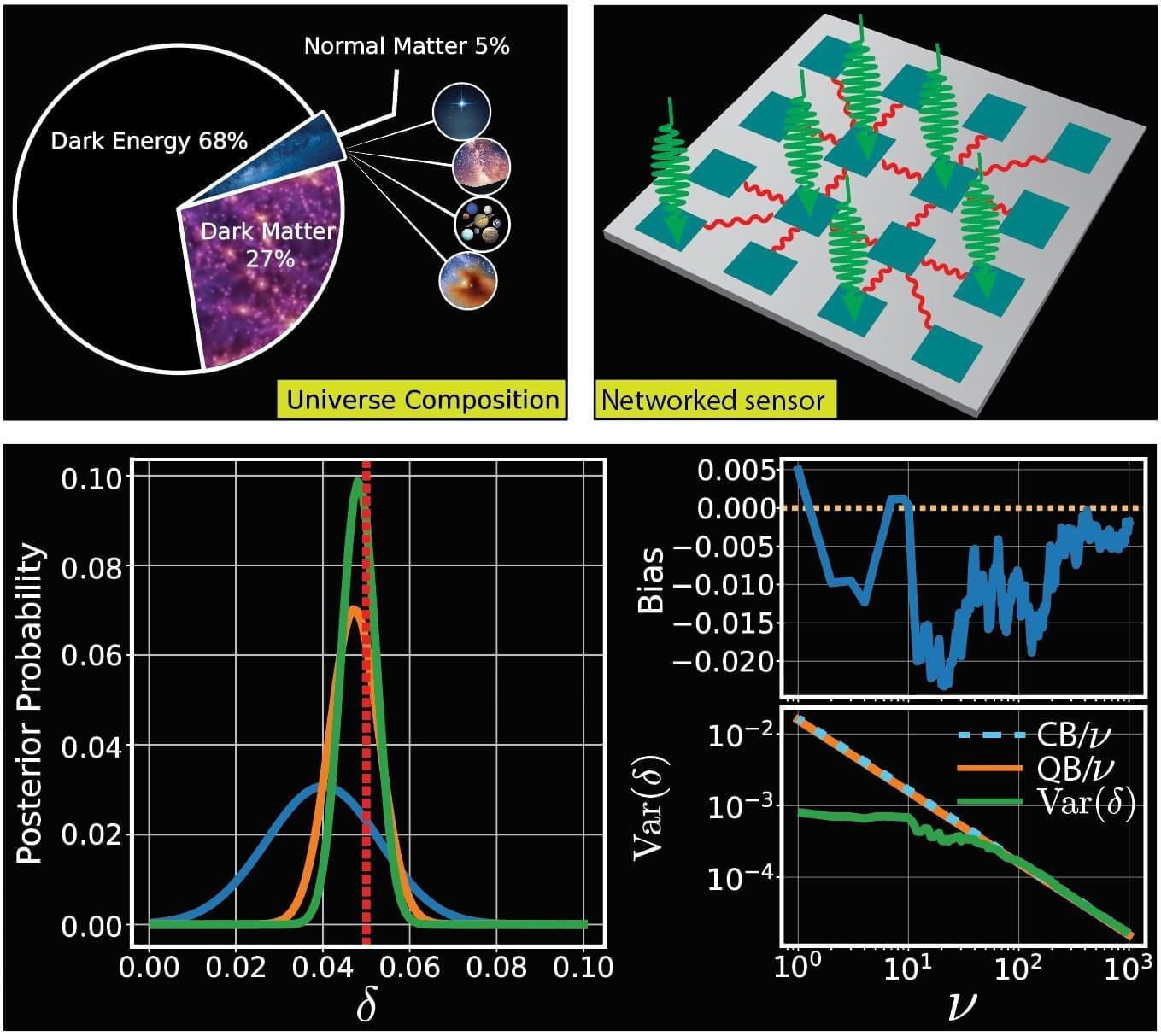Quantum computers hold great potential for solving many problems more quickly or efficiently than conventional computers, but researchers are starting to identify where they could falter



The simulation of strongly interacting many-body systems is a key objective of quantum physics research, as it can help to test the predictions of physics theories and yield new valuable insight. Researchers at Quantinuum, a quantum computing company, recently simulated a simplified version of a well-known theoretical model, the so-called Sachdev-Ye-Kitaev (SYK) model, using a trapped-ion quantum computer and a previously introduced randomized quantum algorithm.
Their simulation, outlined in a paper published on the arXiv preprint server, improves the present understanding of chaotic quantum systems that cannot be simulated using classical computers. In the future, their work could contribute to the simulation of other complex quantum systems and theoretical models.
“We were interested in the SYK model for two reasons: on one hand it is a prototypical model of strongly interacting fermions in condensed matter physics, and on the other hand it is the simplest toy model for studying quantum gravity in the lab via the holographic duality,” said Enrico Rinaldi, Lead R&D Scientist at Quantinuum and senior author of the paper.

IonQ and D-Wave, two publicly traded U.S. quantum computing companies, are joining as founding members of Q-Alliance, a new initiative in Lombardy described by organizers as the foundation of “the world’s most powerful quantum hub.”
The alliance, formalized in Como with a memorandum of understanding, is designed to accelerate quantum research and industrial applications as part of Italy’s broader digital transformation agenda, according to a news release. It is backed by the Italian government’s Interministerial Committee for Digital Transition and supported by Undersecretary of State Senator Alessio Butti.
Q-Alliance will serve as an open platform connecting universities, research institutions, and private industry. The program aims to train young researchers through scholarships and internships, promote collaboration across scientific disciplines, and position Italy as a European center for quantum development.

Two-photon interference, a quantum phenomenon arising from the principle of indistinguishability, is a powerful tool for quantum state engineering and plays a fundamental role in various quantum technologies. These technologies demand robust and efficient sources of quantum light, as well as scalable, integrable, and multifunctional platforms. In this regard, quantum optical metasurfaces (QOMs) are emerging as promising platforms for the generation and engineering of quantum light, in particular pairs of entangled photons (biphotons) via spontaneous parametric down-conversion (SPDC). Due to the relaxation of the phase-matching condition, SPDC in QOMs allows different channels of biphoton generation, such as those supported by overlapping resonances, to occur simultaneously. In previously reported QOMs, however, SPDC was too weak to observe such effects.

Detecting dark matter—the mysterious substance that holds galaxies together—is one of the greatest unsolved problems in physics. Although it cannot be seen or touched directly, scientists believe dark matter leaves weak signals that could be captured by highly sensitive quantum devices.
In a new study published in Physical Review D, researchers at Tohoku University propose a way to boost the sensitivity of quantum sensors by connecting them in carefully designed network structures. These quantum sensors use the rules of quantum physics to detect extremely small signals, making them far more sensitive than ordinary sensors. Using these, accurately detecting the faint clues left behind from dark matter could finally become possible.
The study focuses on superconducting qubits, which are tiny electric circuits cooled to very low temperatures. These qubits are normally used as building blocks of quantum computers, but here they act as powerful quantum sensors. Just as a team working together can achieve more than a single person, linking many of these superconducting qubits in an optimized network allows them to detect weak dark matter signals much more effectively than any single sensor could on its own.
Researchers in Germany have discovered that tiny quantum engines can beat traditional efficiency limits set by Carnot’s theorem.

A team from the Faculty of Physics and the Center for Quantum Optical Technologies at the University of Warsaw has developed a new type of all-optical radio receiver based on the fundamental properties of Rydberg atoms. The new type of receiver is not only extremely sensitive, but also provides internal calibration, and the antenna itself is powered only by laser light.
The results of the work, in which Sebastian Borówka, Mateusz Mazelanik, Wojciech Wasilewski and Michał Parniak participated, were published in Nature Communications. They open a new chapter in the technological implementation of quantum sensors.
In today’s society, huge amounts of digital information are transmitted around us every second. Much of it is transmitted by radio, i.e. using electromagnetic waves. For a very long time, amplitude modulation has been used to encode information, sending stronger and weaker waves.

A new twist on a classic material could advance quantum computing and make modern data centers more energy efficient, according to a team led by researchers at Penn State.
Barium titanate, first discovered in 1941, is known for its powerful electro-optic properties in bulk, or three-dimensional, crystals. Electro-optic materials like barium titanate act as bridges between electricity and light, converting signals carried by electrons into signals carried by photons, or particles of light.
However, despite its promise, barium titanate never became the industry standard for electro-optic devices, such as modulators, switches and sensors. Instead, lithium niobate—which is more stable and easier to fabricate, even if its properties don’t quite measure up with those of barium titanate—filled that role instead. But by reshaping barium titanate into ultrathin strained thin films, this could change, according to Venkat Gopalan, Penn State professor of materials science and engineering and co-author of the study published in Advanced Materials.

For the first time, by studying quantum correlations between triplets of secondary particles created during high-energy collisions in the LHC accelerator, it has been possible to observe their coherent production. This achievement confirms the validity of the core-halo model, currently used to describe one of the most important physical processes: hadronization, during which individual quarks combine to form the main components of matter in the universe.
Quarks and the gluons that bind them are the most numerous prisoners in today’s universe, locked inside protons, neutrons and mesons. However, at sufficiently high energies—such as those that existed shortly after the Big Bang or those that occur today in proton collisions in the LHC accelerator—quarks and gluons are released, forming an exotic “soup”: quark-gluon plasma. Under normal conditions, this plasma is not stable, and as soon as it cools down sufficiently, the quarks and gluons bind together again, producing particles of matter in a process called hadronization.
New details of this fascinating phenomenon, obtained through the analysis of so-called three-body quantum correlations, have been reported by physicists from the Institute of Nuclear Physics of the Polish Academy of Sciences (IFJ PAN) in Krakow, working as part of the LHCb experiment conducted by the European Organization for Nuclear Research (CERN) in Geneva.

Scientists from the G7 nations and Australia signed an “unprecedented agreement” regarding quantum technology on Wednesday, France’s national metrology lab told AFP.
The deal between laboratories involved in the science of measurement hopes to establish benchmarks regarding progress in areas such as quantum computers.
The field has seen leading tech giants claim breakthroughs in recent years that have later been questioned by researchers.